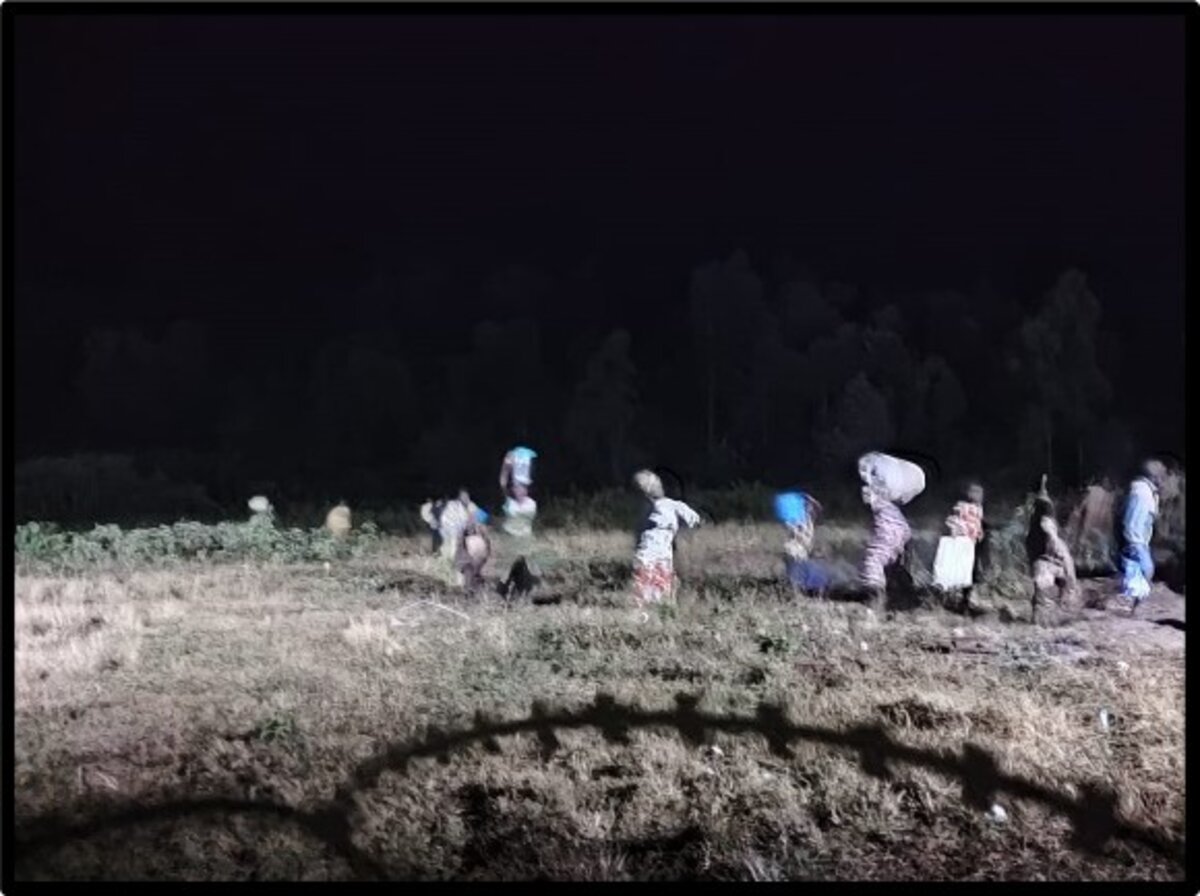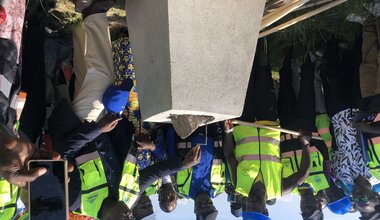Ituri: MONUSCO peacekeepers have thwarted a militia attack in Schubert with the help of its early warning mechanism
Following an alert from the local population received on Friday February 4, 2022, at around 10:30 p.m., MONUSCO peacekeepers from Bangladesh based in Amee, 120 km from Bunia, intervened to thwart an attack that was being prepared by militiamen from the armed group Codero against civilians in the village of Schubert, located 3 km from Amee in the territory of Djugu.
Upon arriving in that village, the blue helmets immediately dominated and secured the village, noting that many residents had left their homes fearing yet another umpteenth incursion by these gunmen. Then the patrol moved further west of the village where they observed suspicious movements from the militiamen, carrying torches, at about 500 to 600 meters in the crest line of the hill.
MONUSCO peacekeepers set off in pursuit of the militiamen who first hid in tall grass before fleeing. The blue helmets successfully dominated the area all night to prevent further attack from the same rebels. It should be noted however that it is the early warning system (CAN) set up by MONUSCO in the community that helped the blue helmets to intervene rapidly and effectively, which saved many lives.
“CAN, or Early Warning System, is a community alert system set up by MONUSCO Civil Affairs Section to facilitate interaction and information-sharing (alerts) between communities and the Congolese defense and security forces and MONUSCO. To this end, MONUSCO has made available to the said communities "24-hour emergency hotline" to help them contact the community liaison assistants (CLA) deployed in the various MONUSCO military bases, free of charge, for the purposes of sending out security alerts in real time so that the authorities and MONUSCO can coordinate prompt responses for rapid interventions in the context of the protection of civilians. To date, in Ituri, roughly fifty CANs are in place, mainly in these three territories : Irumu, Djugu and Mahagi", explained a MONUSCO Civil Affairs officer in Bunia, recalling the importance of this " tool” in the long chain of the protection of civilians.
A resident of Schubert contacted by telephone Saturday morning had this to confirm “indeed, the village was spared thanks to the alert sent out last night. Whenever these militiamen threaten to attack us, we quickly send out alerts to MONUSCO; the latter shares them with FARDC and PNC who, in turn, intervene swiftly. Once again, we thank MONUSCO for its prompt reaction last night. What we want now is to see fully restored peace to enable us, like everyone else, to live without any fear of going about our farming or market activities”, concluded this resident. On Saturday morning (February 5, 2022), the situation was still calm in Amee.
Earlier that same Friday, February 4, at around 8:30 am, another alert from the CAN in Roe, 90 km from Bunia, helped MONUSCO to prevent further attack from another group of the Codeco militiamen in the locality of Okapi, about 16 km south-east of Djugu-center whose population started fleeing for their life.
In coordination with members of the FARDC and the Congolese national police, at around 8:50 a.m., MONUSCO dispatched a patrol to Okapi. Sensing MONUSCO peacekeepers' imminent arrival, Codeco militiamen fled, and calm was restored to the area; as a result, the villagers who had fled, started to get back home.

 UN
UN United Nations Peacekeeping
United Nations Peacekeeping






